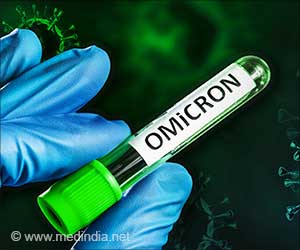
‘COVID-19 infection triggers the production of autoimmune antibodies that circulate through the blood, producing clots in people suffering from severe infection’
Read More..Tweet it Now
Blood clots can cause life-threatening events like strokes. Read More..
"In patients with COVID-19, we continue to see a relentless, self-amplifying cycle of inflammation and clotting in the body," Kanthi says. "Now we're learning that autoantibodies could be a culprit in this loop of clotting and inflammation that makes people who were already struggling even sicker."
The study is published in the new Science Translational Medicine.
Around half of the patients sick with severe COVID-19 exhibited a combination of high levels of both the dangerous antibodies and super-activated neutrophils, which are destructive, exploding white blood cells.
Examining mice models revealed that this lethal combination of explosive neutrophils and the COVID-19 antibodies is behind the clots.
Advertisement
Researchers are testing to see if patients with a high level of these antibodies would benefit from blocking or removing the antibodies. If removing antibodies is found to be effective, then aggressive treatments like plasmapheresis may be necessary.
Advertisement
The researchers are also currently running a randomized clinical trial called DICER, which is testing a well-known anti-clotting agent, dipyridamole, in patients with COVID-19 to determine whether it's more effective than a placebo in reducing excessive blood clots.
'Dipyridamole is an old drug that is safe, inexpensive, and scalable," Kanthi says. "The FDA approved it 20 years ago to prevent clotting, but we only recently discovered its potential to block this specific type of inflammation that occurs in COVID."
Source-Medindia














